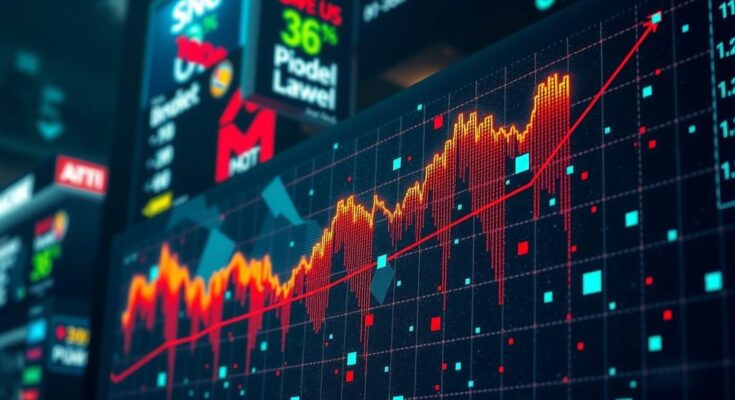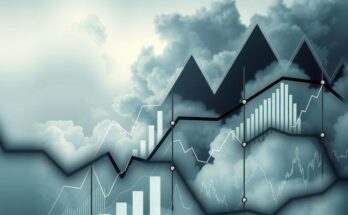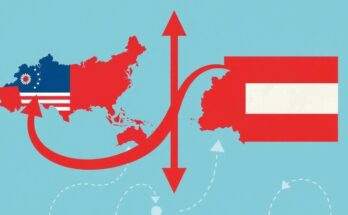The article delves into the economic and moral considerations of price gouging during disasters, analyzing the differing perspectives on market dynamics and state interventions. It highlights the challenges in regulating prices while encouraging efficient market responses. The discourse raises pertinent questions about consumer behavior, government authority, and the implications of recent inflation trends on food prices.
Hurricane Helene serves as a stark reminder that disasters can disrupt our lives, causing one to reflect on the fragility of homes, businesses, food, and water supplies. During such crises, sellers may raise prices due to heightened demand, prompting debates on price gouging, which is often met with public outcry and legal consequences. Economists argue that higher prices can optimize the market by curbing hoarding and promoting supply, yet this raises moral questions regarding accountability and state intervention. Economic theories are challenged when prices rise after disasters; we often blame sellers but rarely scrutinize the frantic buyers driving up demands. The recent inflation patterns in grocery prices provoke questions about whether they are due to a macroeconomic trend or individual instances of price gouging. Given the fluctuating costs of significant necessities like groceries, should the federal government intervene in pricing during normal circumstances? Public perception of a food crisis in America is clouded with political narratives, despite the reality that a significant portion of food expenses is incurred at restaurants. While some Americans face tough choices in budgeting for food versus medical needs, for many, the dilemma leans towards opting for different eateries rather than pure survival. Fresh produce has actually seen less inflation compared to processed foods, contradicting alarmist predictions about food affordability. Economists cite the stability and efficiency of grocery markets, crediting market forces for keeping prices relatively lower than energy costs. In fact, Americans now spend a smaller fraction of their income on food than in previous decades. Despite significant burdens for low-income populations, overall expenses are manageable for the majority, suggesting that recent concerns may be exaggerated amid other economic pressures. Yet, the call for stringent price gouging laws, such as the measures proposed by economists like Zephyr Teachout, raises questions about market responsiveness. Teachout critiques the inefficiency of current markets in addressing quick supply shortages, particularly in heavily consolidated sectors. However, this begs further investigation into how barriers to entry affect competition and whether price control measures impede market efficiency. Debates surrounding existing price gouging laws focus on the moral implications of price increases, emphasizing determining what constitutes an “unconscionable” price. Each crisis presents unique circumstances, and ambiguity in defining necessities complicates law enforcement’s ability to regulate prices effectively. The economic rationale for price increases can often provoke discussions on necessity versus consumer behavior during panic. While some high-profile cases of potential price gouging have drawn attention, such as those investigating grocery executives, a comprehensive understanding of pricing dynamics is crucial. Price gouging legislation prompts important conversations regarding government intervention and the long-term implications for market behavior. Similarly, skepticism towards growing federal authority over price settings highlights the need for a balanced approach to protect consumers without stifling entrepreneurship or innovation. Efforts to expand federal control over pricing point to a troubling precedent, echoing wartime authority that extends into peacetime economics. Instances during the pandemic whereby individuals faced government charges for pricing reflect a concerning trend of legislation designed to manage prices rather than market forces. The broader implications suggest that should such powers be routinely exercised, they may endanger core market principles instead of providing genuine relief for consumers. As discussions on price gouging persist, striking a balance between protecting citizens from exploitation and maintaining healthy market competition becomes paramount. The ongoing scrutiny of economic practices should be rooted in empirical data rather than populist sentiments, fostering a more dynamic discourse on the interplay of government actions and market realities. In doing so, stakeholders can address the validity of pricing concerns while ensuring that moral and economic theories harmoniously inform public policy decisions.
The article explores the complexities surrounding price gouging, particularly during disasters, while examining the economic rationale behind price increases and government response. As natural disasters highlight vulnerabilities in supply systems, price gouging laws emerge as a contentious topic with significant legal and moral implications. Economists emphasize the importance of market mechanisms while also critiquing government interventions that may hinder free market dynamics. The topic ties into broader discussions about food affordability, inflation, and the role of state authority in market pricing.
In conclusion, the issue of price gouging encapsulates a broader debate over market efficiencies, government interventions, and ethical considerations. While price increases may serve as critical signals for supply management, unchecked government power may lead to detrimental consequences for market health. As discussions evolve, the narrative must focus on data-driven insights that balance consumer protection with economic viability, steering the discourse towards sustainable public policy outcomes centered on fair market practices.
Original Source: lawliberty.org



